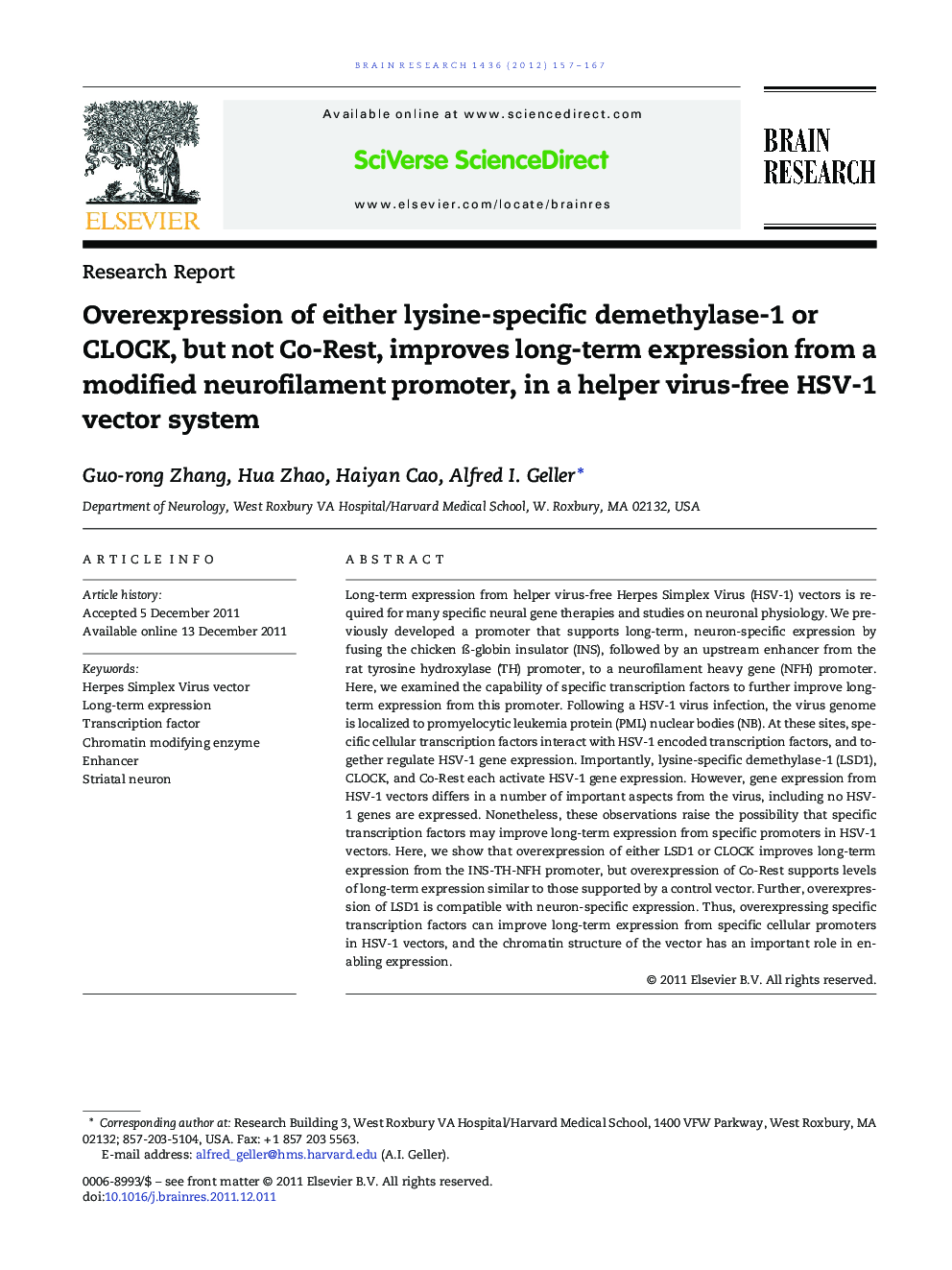| Article ID | Journal | Published Year | Pages | File Type |
|---|---|---|---|---|
| 6264559 | Brain Research | 2012 | 11 Pages |
Long-term expression from helper virus-free Herpes Simplex Virus (HSV-1) vectors is required for many specific neural gene therapies and studies on neuronal physiology. We previously developed a promoter that supports long-term, neuron-specific expression by fusing the chicken Ã-globin insulator (INS), followed by an upstream enhancer from the rat tyrosine hydroxylase (TH) promoter, to a neurofilament heavy gene (NFH) promoter. Here, we examined the capability of specific transcription factors to further improve long-term expression from this promoter. Following a HSV-1 virus infection, the virus genome is localized to promyelocytic leukemia protein (PML) nuclear bodies (NB). At these sites, specific cellular transcription factors interact with HSV-1 encoded transcription factors, and together regulate HSV-1 gene expression. Importantly, lysine-specific demethylase-1 (LSD1), CLOCK, and Co-Rest each activate HSV-1 gene expression. However, gene expression from HSV-1 vectors differs in a number of important aspects from the virus, including no HSV-1 genes are expressed. Nonetheless, these observations raise the possibility that specific transcription factors may improve long-term expression from specific promoters in HSV-1 vectors. Here, we show that overexpression of either LSD1 or CLOCK improves long-term expression from the INS-TH-NFH promoter, but overexpression of Co-Rest supports levels of long-term expression similar to those supported by a control vector. Further, overexpression of LSD1 is compatible with neuron-specific expression. Thus, overexpressing specific transcription factors can improve long-term expression from specific cellular promoters in HSV-1 vectors, and the chromatin structure of the vector has an important role in enabling expression.
⺠Promoters that support long-term expression are desirable. ⺠Overexpression of specific transcription factors can improve expression. ⺠Lysine-specific demethylase-1 or CLOCK improves long-term expression. ⺠Co-Rest does not improve long-term expression.
